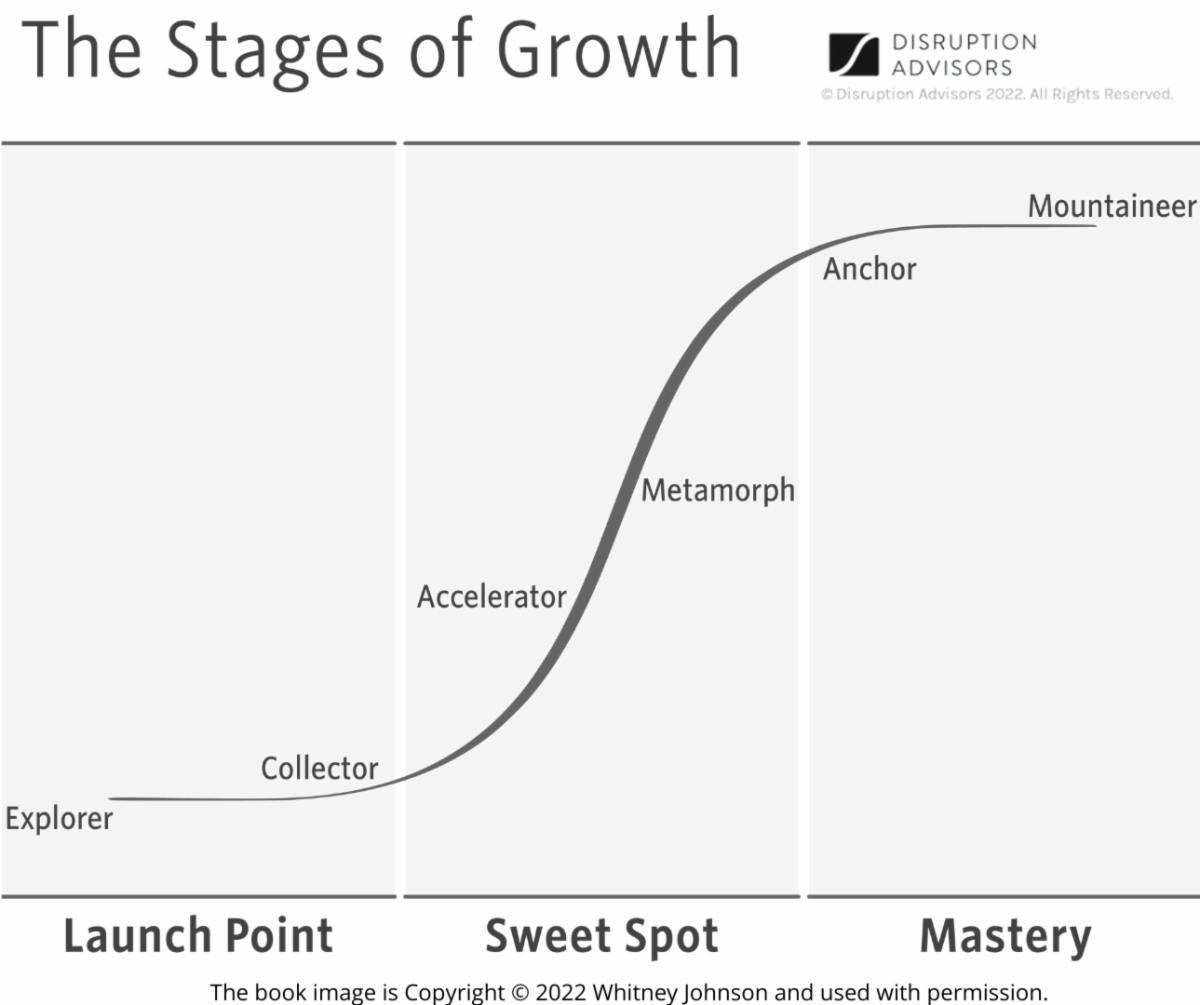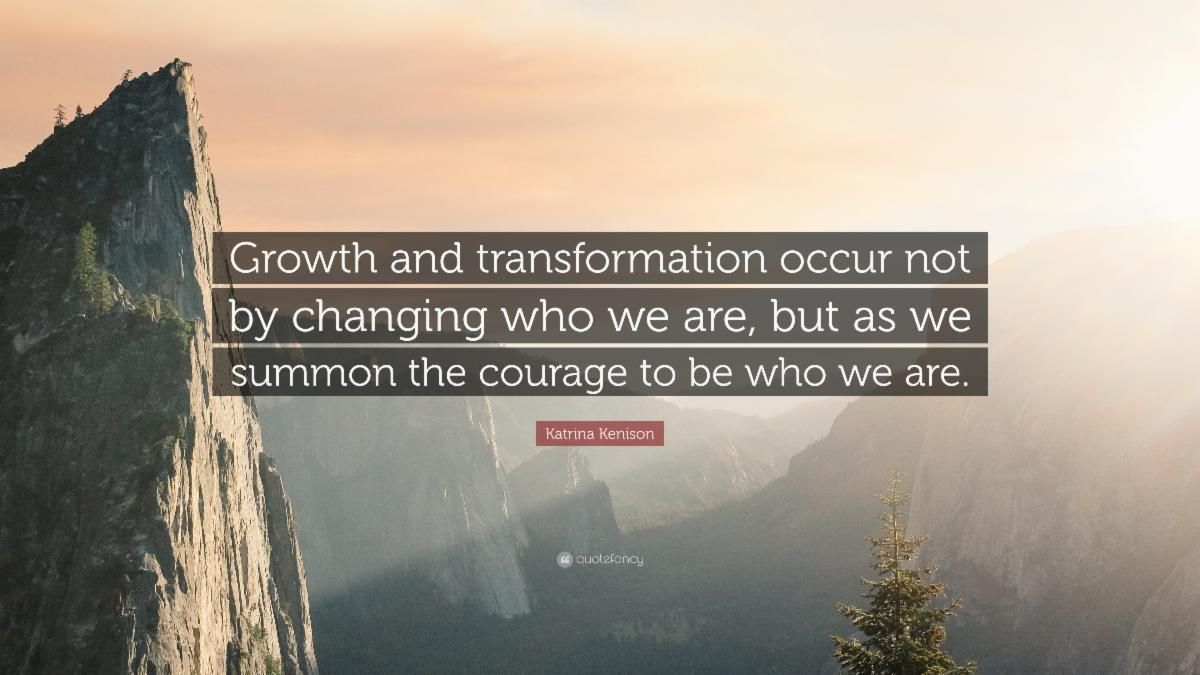
February 17, 2022
Smart Growth
Executives are responsible for guiding their organizations through growth. This is hard work and requires changing the mindset, behaviors, and actions of a team.
As I discuss in my recent Forbes article, Whitney Johnson’s S Curve of Learning can help leaders to navigate the challenges of growth. I’ve known Whitney for years and her latest book, Smart Growth: How to Grow Your People to Grow Your Company, outlines a useful roadmap and provides a common language.

The S Curve of Learning is defined by the three phases outlined below. Each phase is defined by what it feels like to be at that phase of growth and the key opportunities at each stage.
Phase I Launch Point: At the start of the curve, growth is slow and feels overwhelming.
- Stage 1 Explorer: Time to explore possibilities and define the path forward
- Stage 2 Collector: Time to gather input, feedback, and data
Phase II Sweet Spot: In the middle of the curve, momentum is building and growth feels fast.
- Stage 3 Accelerator: Time to shift from creating to scaling and replicating success
- Stage 4 Metamorph: Time to make way for the desired change to become the norm
Phase III Mastery: At the top of the curve, there is sustained high performance and the feeling of growth begins to slow.
- Stage 5 Anchor: Time to see the desired change ingrained in your organization
- Stage 6 Mountaineer: Time to enjoy the success and look for the next challenge
The better a leader understands the stages of growth, the more effectively they are able to guide their teams through change. The S Curve of Learning is a tool that allows you to do this successfully.
Getting the Best Out of Your Top Sales People
When it comes to driving performance in sales, it’s almost pavlovian how executives immediately look to compensation. Some even say sales professionals are coin-operated. While that is a commonly held belief, it’s based in part on a model of sales effectiveness that no longer works. In my experience, sales professionals are no more coin operated than finance professionals, marketers, or executives in the C-suite.
Of course compensation is important to all professionals. But in research by my friend and colleague at Korn Ferry, Joe Dimisa, it was fifth on the list of what star sales reps seek. Fifth.
Here are four things on the list that are more important than compensation:
- Let your sales reps sell without being hindered. (Remove barriers)
- Provide greater work-life balance and sense of well-being. (Increase flexibility)
- Give them job security and a sense of future opportunities. (Develop their talent and skills)
- Get them excited to work for a company with brand recognition and a strong reputation. (Inspire them and strategically guide them)
As I’m fond of saying about compensation, it won’t make your people better. Compensation applied effectively can help drive focus and may increase effort. But it won’t make people better at what they do. Only leadership that prioritizes developing talent can do that. Don’t jump to compensation and forget to prioritize these important drivers. By giving your sales people the right kind of leadership, you’ll get the best from them.
Everyone Hates Your Long Emails
By now you’ve heard Mark Twain’s famous quotation “I apologize for such a long letter - I didn't have time to write a short one.”
The essence here applies to email by orders of magnitude. Especially since many emails (maybe most?) are read on a phone. The best executives are succinct and focused in their communication.
I have more planned for you on this topic, but for now try this:
- Keep it to 100-125 words (you will be astonished at how challenging that can be).
- Include white space in between ideas.
- Make one point at a time.
Easier written here than done.
Current Read
Having “no regrets” is a way of life for many. This philosophy allows people to stay present and not think about the potential consequences of their actions.
But this mentality is missing an important element of regret… that it’s a healthy and important component of the human experience. Used correctly, regret can provide clarity and give you (or others) information to make better decisions in the future. A 2021 Bentley University study found that when executives harnessed feelings of regret to their advantage, it gave them greater clarity while tackling challenges their business was facing.
Daniel Pink’s article in the Wall Street Journal, ‘No Regrets’ Is No Way to Live, examines regret and provides steps to take advantage of regret that we could all apply.
Quotable


